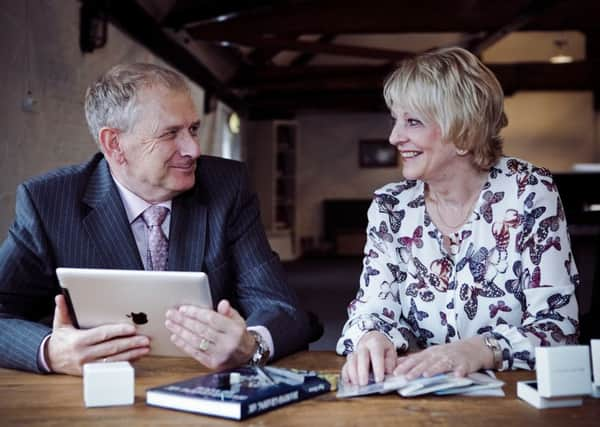How one Yorkshire jeweller is turning to the lab for his diamond prize
This article contains affiliate links. We may earn a small commission on items purchased through this article, but that does not affect our editorial judgement.


STEPHEN Nightingale is a living embodiment of the jewellery industry’s staunch traditionalism.
He champions age-old jewellery-making methods, passed on from generation to generation. He knows gems and their socio-historical facets on a pathological level. After 46 years in the trade, he still speaks of jewellery with a sparkle in his eye. And quite unlike many of his peers, Stephen embraces change.
Advertisement
Hide AdAdvertisement
Hide AdA profound change is embodied, albeit impossible to manually detect, in some of the diamonds Stephen sells through his jewellery business, Nightingale. They’re perfectly clear, perfectly cut, perfectly coloured, chemically perfect diamonds… but they were grown in a laboratory, not mined.
Lab diamonds are not exactly cutting edge - they’ve been used as cutting edges on super-heavy-duty industrial machinery for decades. Until very recently, however, precious few have been used by jewellers. Stephen thinks it’s time for that to change.
“Now that lab diamonds can be produced at such a high quality, we need to bring them into the jewellery arena.


“They have identical properties to natural diamonds, are conflict free, and provide a cost saving of about 30%.”
Advertisement
Hide AdAdvertisement
Hide AdSuch significant savings surely mean there’s a strong commercial case for choosing lab diamonds over their naturally occurring counterparts - so why aren’t the big high street jewellers jumping on the bandwagon?
“There isn’t, at the minute, a large line of supply. Until there’s a big supply coming through - which is probably going to be 25 years down the line - lab diamonds won’t be all over like they would be at Beaverbrooks.They don’t just switch the machine on and then, ten minutes later, there’s a diamond. It’s a big, long process requiring hard-earned skills and expensive facilities.”
Stephen is dealing with an innovative trade that’s still in its infancy. Lab-grown gems accounted for just 2% of all diamonds used in the jewellery industry in 2013 (conversely, 98% of industrial or ‘bort’ quality diamond was lab-grown in the same year). Nightingale are amongst the first British jewellers to join a trend that’s starting to flourish in the United States, where many of the world’s gem-grade lab diamonds are produced. But will consumers in the UK catch on?
“I don’t think consumers in the UK are really aware of lab diamonds, as yet. It’s going to take a while, as they’re pretty new to the jewellery industry - it has only been two years since they began being marketed in America. It’s still very, very, very new.
Advertisement
Hide AdAdvertisement
Hide Ad“If you asked the public about them they would probably think of diamond simulants - that’s stones that look like diamonds but have nothing like the same properties as them. There’s a lot of educating to do.”
Stephen’s aims for Nightingale are not atypical for an independent jeweller trading online - “to become a respected hometown jeweller, available to everybody in the whole country” - but the decision to embrace lab-grown diamonds so wholeheartedly is pioneering. The big high street jewellers will be charting this little bird’s trajectory with interest.
Nightingale sell jewellery online and offer free bespoke jewellery design consultations at their office on Blake Street, York.